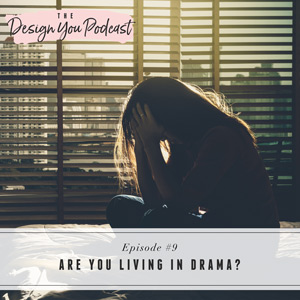
I am LOVING my work right now, but I’ll be the first one to tell you that this hasn’t always been the case. It’s easy to get caught up in a flurry of drama around your everyday tasks, especially when you feel like other people are bringing you down. Today, I explore the concept of internal drama and how it’s stopping you from achieving what you want.
The internal drama that goes on in your mind tends to go unnoticed. While it’s difficult to see the drama in ourselves, I’m here to help you identify it, break down why it happens, and give you a technique to change any negative thoughts you might be having about any situation!
Tune in this week and answer an 11-question quiz I’ve created to help you establish if you’re living in drama! Start practicing these tools to manage your mind and watch your business grow in abundance!





